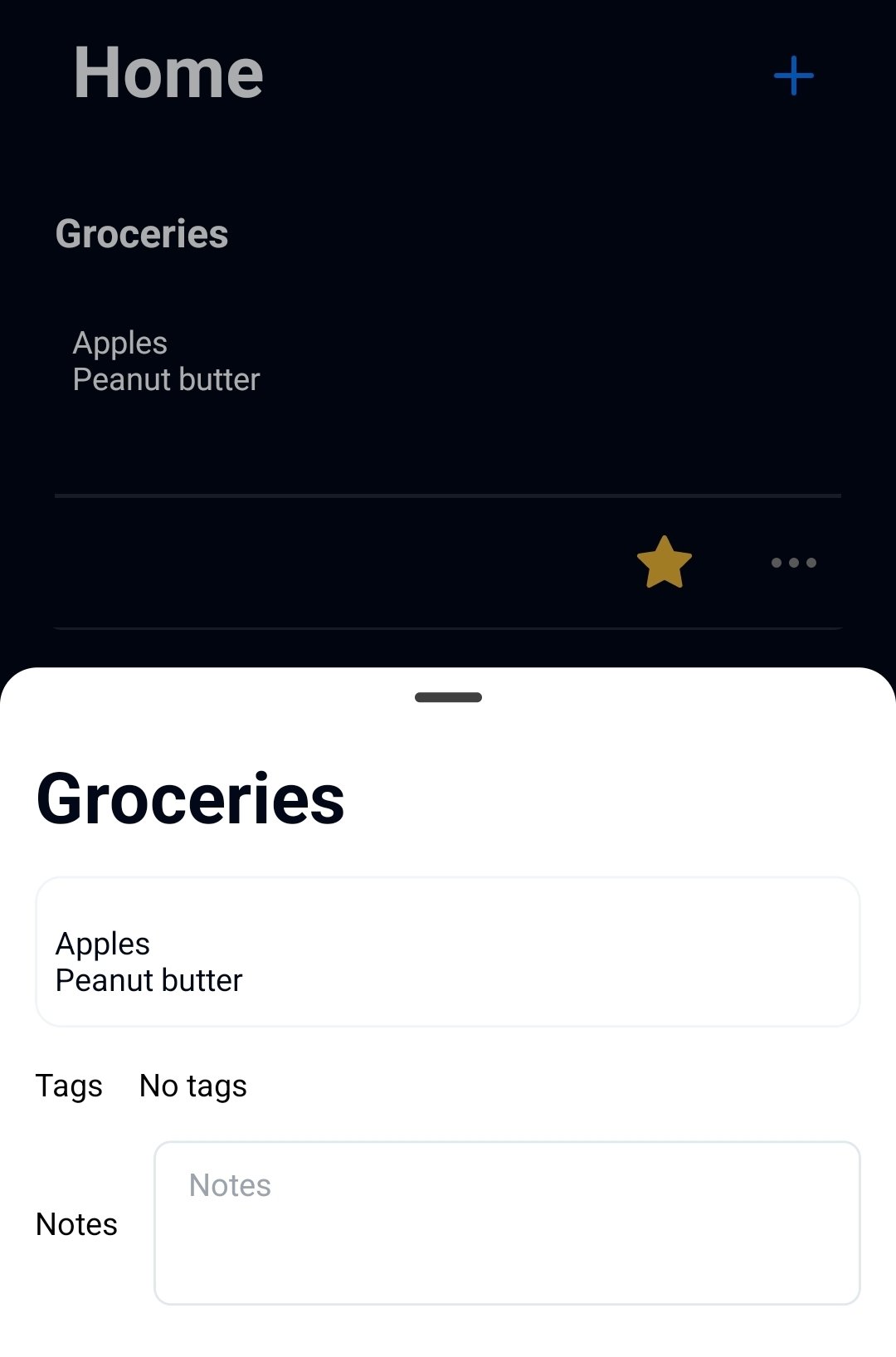Or reinforce your walled garden and strengthen user lock-in?
xodoh74984
This is sad. Google Play should never hold this much weight in the self hosted community. For Android users dedicated to open source software, F-Droid is the target.
I don't think SyncThing users would have much issue with the app disappearing from Google. Doing away with Google is the goal.
I spun this up yesterday, because it's the first viable Google Keep replacement I've seen. I love the ability to archive bookmarked pages. And while the web app is clunky for notes (worse UX than Keep), the Android app is a decent replacement. The only weird thing is the option to add notes to notes so you can note while you note.

Worth mentioning that adding or changing a title is completely impossible on Android. Support for titles is included, but hidden, in the web UI, and the web UI adds unnecessary friction to editing notes.
The web UI also doesn't support newline characters unless they're preceded by two spaces (strict markdown formatting, like on Lemmy/Reddit), which is annoying. Markdown support is nice, but the vast majority of notes and reminders that I create only require plaintext.
I wouldn't worry about the extra features. Most of the ones you've listed are used to clean up bad recordings, but that's something you're in control of here.
For recording, the software doesn't matter much. The most important thing IMO is to record at a level where the typical amplitude of the input audio (normal speech in this case) sits at around half the max level of the input. That's because you can always increase the volume level after recording, but once a loud segment clips above the max level, that distortion is there forever. Recording in 24-bit vs 16-bit helps with this strategy, because the extra bit depth in recording amplitude resolution allows the headroom to boost the volume later without any perceptible loss. Large diaphragm mics sound best for voice recording. Of course, I'm not recommending you run out and buy a large diaphragm USB mic that can record in 24-bit if it's prohibitively expensive. I don't know what your setup is currently, and for most listeners, good mastering will make a bigger difference than great recording gear.
Stereo Tool can make almost anything shine, but if that's too pricey as well, just find a post processing tool with a good compressor/limiter combo and an expander. There are probably good open source tools out there.
I'm an EE and audiophile who did a bit of audio engineering in university for the student radio station. Our station had a whole rack of hardware audio processing tools, but honestly, this DSP software does a better job of making broadcast audio sound professional than anything else I've used—including some mastering VST's I've used in music production. Highly recommend it.
The primary mechanism of action for low-dose rapamycin in longevity is inhibiting mTOR. Reduced inflammation is an important side effect, but mTOR inhibition is the goal. It mimicks fasting, causing cells to ramp up autophagy—a natural process by which organisms recycle half-functioning cells (senescent cells) and use the proteins to build new cells that function properly and don't produce toxic byproducts.
mTOR inhibition is not the only pathway in cellular metabolism that triggers autophagy, but it's a major one with a measurable effect.
In simpler terms, inhibiting mTOR by fasting (or by mimicking fasting with intermittent low-dose rapamycin), signals that times are tough and pushes organisms to hunker down for survival. This is good, because it promotes better overall health at a cellular level. The reduction of toxic byproducts from senescent cells is likely a driver of the reduced inflammation that has been observed.
That said, "anti-aging" is a cringey buzzword that hurts the credibility of the field.
Rapamycin has the most promise of any longevity intervention, with over 20 years of research and results that have been reproduced by the NIH.
It's difficult to fund a clinical trial in humans for this particular use of rapamycin, however, because there is no profit motive for pharmaceutical companies. FDA approval for new uses of an off-patent drug won't make pharma companies rich. The same problem exists for research on many traditional medicines.
ITT: People who don't know what they're talking about
I guess cypherpunk?
That's probably right. I dunno man, I don't work here.
There are. There isn't any difference. It's like people being afraid of facial recognition for border checks. It's creepy at first, but governments already have pictures of everyone's faces from their ID's. They don't gain anything from the additional photo except efficiency to speed up a process that's already in place.
Edit: I will say that I would never want a government app directly linking my ID to my phone unless I could be absolutely sure it wasn't doing anything creepy in the background. I wish sandboxing apps was a default feature for all smartphones.
Hal Finney, no?
The software engineer, cryptography expert, and cyberpunk who received the first ever Bitcoin transaction and had a neighbor named "Dorian Satoshi Nakamoto"?
~~Whoosh~~
Edit: My point was that a couple of kids doing this on a small scale pales in comparison to Meta's reach. The students didn't do anything particularly novel, and Meta, which has a much more comprehensive dataset of faces linked to personal information, personal communications, etc, is already using every means available to do the same thing. The college students simply demonstrated what Meta is already doing on a global scale.
Yes, fuck Israel and fuck Russia. Not sure why I'm responding to this dumb bait, but here we are. It's not a straw man argument when both countries are run by literal human feces